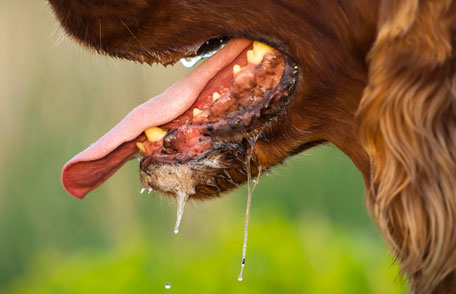25 Warning signs your dog has Rabies
Rabies is a dangerous virus that attacks the nervous system and can result in brain tenderness. Although survival is feasible, the virus almost always kills its host. The virus grows in the muscle tissue prior to getting into the spinal cord and brain.
The virus can't survive for more than a day outside its host.

How Is Rabies Transmitted?
Transmission is usually through bodily contact. The virus travels through the spinal cord and brain within the latterly phases. Once it enters the saliva glands and produces foaming of the mouth, it's far thought to be advanced and remarkably contagious.
Large amounts of the virus are found in saliva and are transmitted just after the infected vertebrate bites an uninfected vertebrate.
Other methods of transmission consist of scratches or infected blood or saliva coming in contact with another vertebrate’s open wound. In severely rare cases, the microorganism is declared to still be contagious by inhaling the gasses coming out of decomposing infected animals.
Wild animals pose the biggest risk because they're normally not vaccinated and come into touch with other wild animals. Common carriers consist of bats and raccoons.
Initial Warning Signs
There are a couple of phases of the rabies microbe. Infected hosts may experience 1, 2 or more of these phases. The following preindication are linked to the archetypal phase:
- Licking, biting or chewing on the section of the infectious bite
- Restlessness
- Apprehension
- Aggression
- Fever
- Shyness
- Irritability
- Unusually quiet behavior in an active animal
- Biting or snapping
Progressive Warning Signs
As the virus moves from the muscle to the spinal cord, brain and finally the saliva glands, the various signs will appear. These symptoms generally occur within the uttermost 2 phases of the virus:
- Heightened sensitiveness to light, touch or sound
- Jaw hangs open
- Difficulty swallowing
- Heavy breathing
- Choking sounds or motions
- Eating unexpected items
- Hiding in covert places
- Paralysis of the hind legs or staggering
- Loss of control over the throat
- Foaming at the mouth
- Disorientation or loss of coordination
- Loss of appetite
- Weakness
- Fear of water
- Trembling
- Dilated pupils
Symptoms can show up as soon as 10 days afterwards the bite to as long as months afterward.